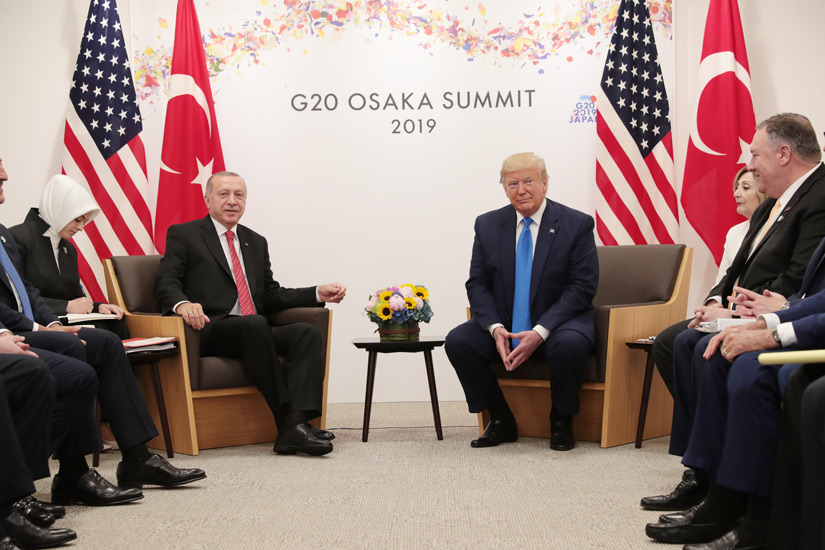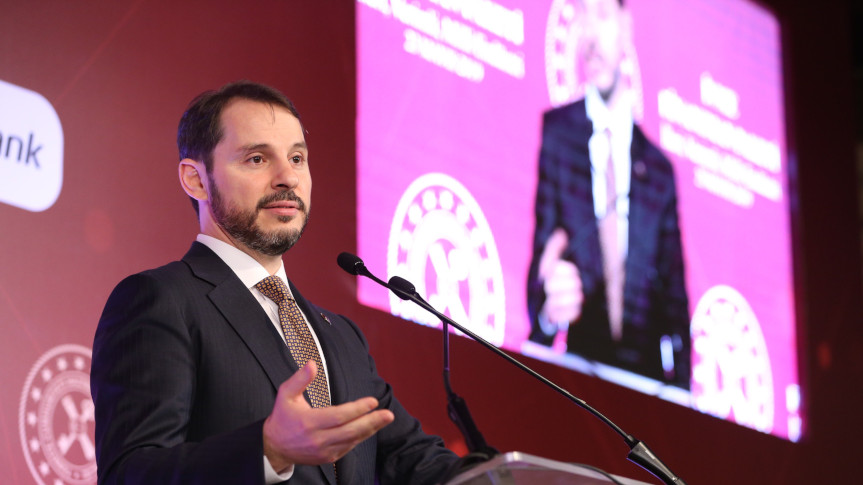Interest rates in Turkey are set to fall further, Finance Minister Berat Albayrak has said, as the country aims to return to economic growth after it was tipped into recession by last year’s currency crisis.
Speaking at a press conference on Tuesday, 30 July, the minister said he hoped to see more interest rate reductions from Turkey’s Central Bank, which a week earlier had slashed its headline rate from 24 to 19.75 per cent, said to be the bank’s single biggest cut since 2003.
The rate had been previously raised to counter the effects of inflation that hit more than 25 per cent following a huge fall in the value of the Turkish lira in August 2018, which came amid tensions in US-Turkish relations.
The reversal was the first policy decision by new Central Bank governor Murat Uysal, who took over from Murat Çetinkaya at the start of July.
Mr Çetinkaya had been dismissed from his post by President Recep Tayyip Erdoğan, who has long been an advocate of lower interest rates.
“With the serious loosening of interest rates in Turkey in the recent period and based on the fact that the interest rate trend will come down more clearly and strongly in the coming period, we have entered a period of interest rate cuts,” Mr Albayrak said, according to Turkish media reports.
“We need to express this here: the Central Bank makes its monetary policy and interest rate decisions based on its data set.”
The July rate cut was more than double what some analysts had predicted, Bloomberg reported.
“Rate cuts will begin in July and probably proceed until rates fall until say, 17% or slightly lower, before the exchange rate and financial consequences wreak havoc,” Commerzbank AG analyst Tatha Ghose said ahead of Mr Uysal’s announcement.
Murat Uysal making his first public statement as the new head of Turkey’s Central Bank
In contrast Mr Albayrak struck an upbeat tone about the prospects for the Turkish economy, declaring that the country had “left the worst behind”, as the Turkish lira hit a four-month high against the US dollar.
“One year ago, even I did not expect such a rapid recovery,” he said, adding that foreign investors had pumped more than $10 billion into Turkey since May.
“Investors, who trust Turkey, have gained” in this period, he stated.
The possibility of US sanctions following Turkey’s purchase of the Russian-made S-400 missile system would only have a “minimal” effect on the Turkish economy, Mr Albayrak said.
Ongoing talks with Washington DC and statements by American officials pointed to a “more positive process” regarding the issue, he said.
In June at the G20 meeting in Japan, President Trump told Mr Erdoğan that Turkey had been treated “unfairly” by the Obama administration over the S-400 saga.
On Wednesday Turkey’s Central Bank cut its end-of-year inflation forecast for 2019 to 13.9 per cent, down from 14.6 per cent in its previous report, according to the Anadolu news agency.

Annual inflation is expected to fall further to 8.2 per cent in 2020 and 5.4 per cent in 2021, Mr Uysal said in his first press conference, in Ankara, as he presented the Central Bank’s latest inflation report.
A separate story by the Financial Times reported that Mr Uysal used the press conference to defend the sacking of his predecessor, saying it had been done “in line with the existing legislation”.
He also insisted that the Central Bank remained independent, but that there was a difference between “independence in the area of instruments and objectives”.
“According to the legal framework, the inflation target is determined together with the government,” the FT quoted him as saying. “But we are independent with regard to the tools we can use to achieve that objective.”
Meanwhile Turkish state lender Ziraat Bank announced that it had lowered its interest rates on housing, consumer and corporate loans as of 1 August following the Central Bank’s decision.




